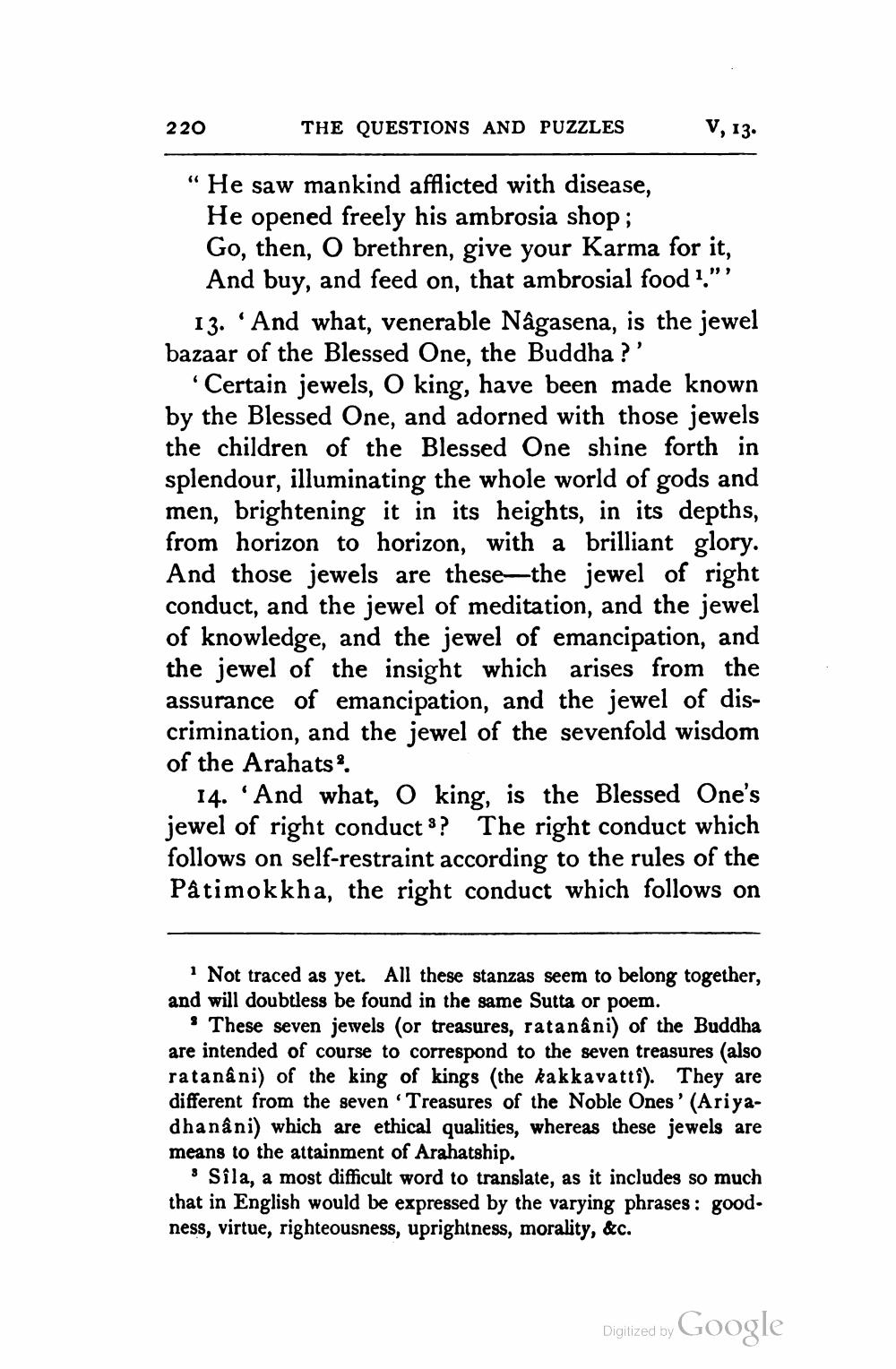________________
220
THE QUESTIONS AND PUZZLES
V, 13.
" He saw mankind afflicted with disease, He opened freely his ambrosia shop; Go, then, O brethren, give your Karma for it,
And buy, and feed on, that ambrosial food 1.". 13. “And what, venerable Nâgasena, is the jewel bazaar of the Blessed One, the Buddha ?'
Certain jewels, O king, have been made known by the Blessed One, and adorned with those jewels the children of the Blessed One shine forth in splendour, illuminating the whole world of gods and men, brightening it in its heights, in its depths, from horizon to horizon, with a brilliant glory. And those jewels are these—the jewel of right conduct, and the jewel of meditation, and the jewel of knowledge, and the jewel of emancipation, and the jewel of the insight which arises from the assurance of emancipation, and the jewel of discrimination, and the jewel of the sevenfold wisdom of the Arahats?
14. 'And what, o king, is the Blessed One's jewel of right conduct 3? The right conduct which follows on self-restraint according to the rules of the Pâtimokkha, the right conduct which follows on
· Not traced as yet. All these stanzas seem to belong together, and will doubtless be found in the same Sutta or poem.
* These seven jewels (or treasures, ratanani) of the Buddha are intended of course to correspond to the seven treasures (also ratanâni) of the king of kings (the kakkavatti). They are different from the seven Treasures of the Noble Ones' (Ariyadhanâni) which are ethical qualities, whereas these jewels are means to the attainment of Arahatship.
* Sila, a most difficult word to translate, as it includes so much that in English would be expressed by the varying phrases: good. ness, virtue, righteousness, uprightness, morality, &c.
Digitized by Google




